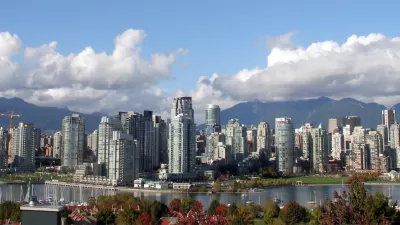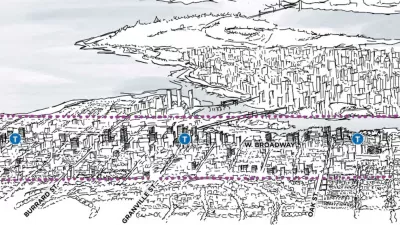In Vancouver, the presence of corner stores indicates diverse, dynamic, and affordable neighborhoods. But is the disappearance of such stores from neighborhoods across the city a sign that residential areas are becoming unbalanced?
Can an independent corner store still survive in Vancouver? And, if not, what does that imply about the state of the city's residential neighborhoods? These questions were the topic of a recent discussion led by Andy Yan, an urban planner for Bing Thom Architects.
"We might not give much thought to these oases in the urban desert, but their existence can improve a neighbourhood and raise property values," writes Kerry Gold. "Because they succeed best in areas with diverse incomes and urban density, they represent an equilibrium, the happy existence of a multi-layered community. There is a correlation between the corner store and affordable housing. They go together."
But in Vancouver, "corner stores are disappearing from neighbourhoods, with 82 per cent in non-residential areas," worrying planners, developers, and business owners alike.
“The corner store is a sign that things are in balance,” says Jake Fry, a director of non-profit Small Housing B.C. “There is something about income and the corner store and population — they have to be balanced properly. It really is the biggest telling thing of a dynamic neighbourhood. It’s like the canary in the coal mine.”
FULL STORY: Corner stores mean solid neighbourhoods

Maui's Vacation Rental Debate Turns Ugly
Verbal attacks, misinformation campaigns and fistfights plague a high-stakes debate to convert thousands of vacation rentals into long-term housing.

Planetizen Federal Action Tracker
A weekly monitor of how Trump’s orders and actions are impacting planners and planning in America.

In Urban Planning, AI Prompting Could be the New Design Thinking
Creativity has long been key to great urban design. What if we see AI as our new creative partner?

King County Supportive Housing Program Offers Hope for Unhoused Residents
The county is taking a ‘Housing First’ approach that prioritizes getting people into housing, then offering wraparound supportive services.

Researchers Use AI to Get Clearer Picture of US Housing
Analysts are using artificial intelligence to supercharge their research by allowing them to comb through data faster. Though these AI tools can be error prone, they save time and housing researchers are optimistic about the future.

Making Shared Micromobility More Inclusive
Cities and shared mobility system operators can do more to include people with disabilities in planning and operations, per a new report.
Urban Design for Planners 1: Software Tools
This six-course series explores essential urban design concepts using open source software and equips planners with the tools they need to participate fully in the urban design process.
Planning for Universal Design
Learn the tools for implementing Universal Design in planning regulations.
planning NEXT
Appalachian Highlands Housing Partners
Mpact (founded as Rail~Volution)
City of Camden Redevelopment Agency
City of Astoria
City of Portland
City of Laramie




























